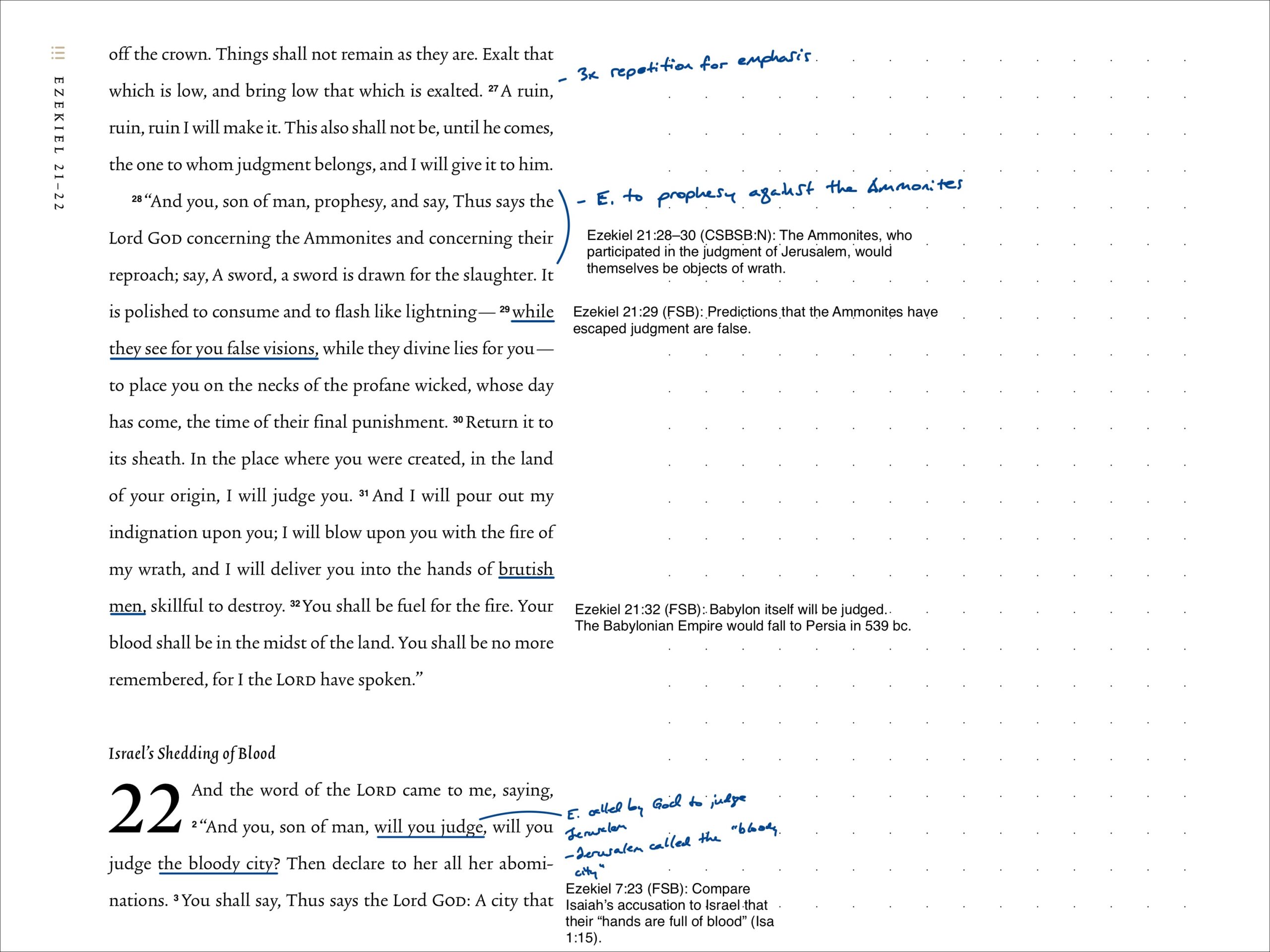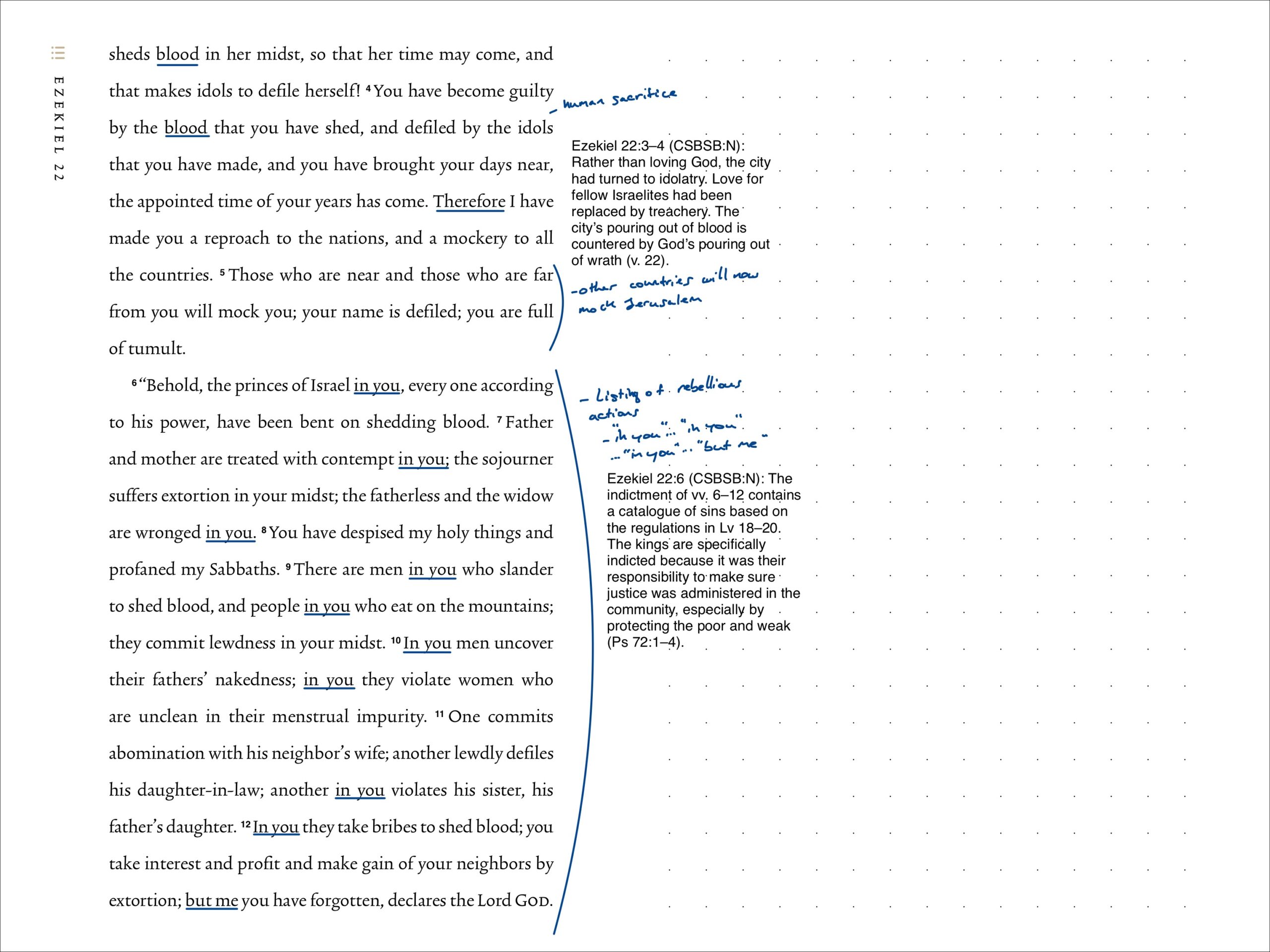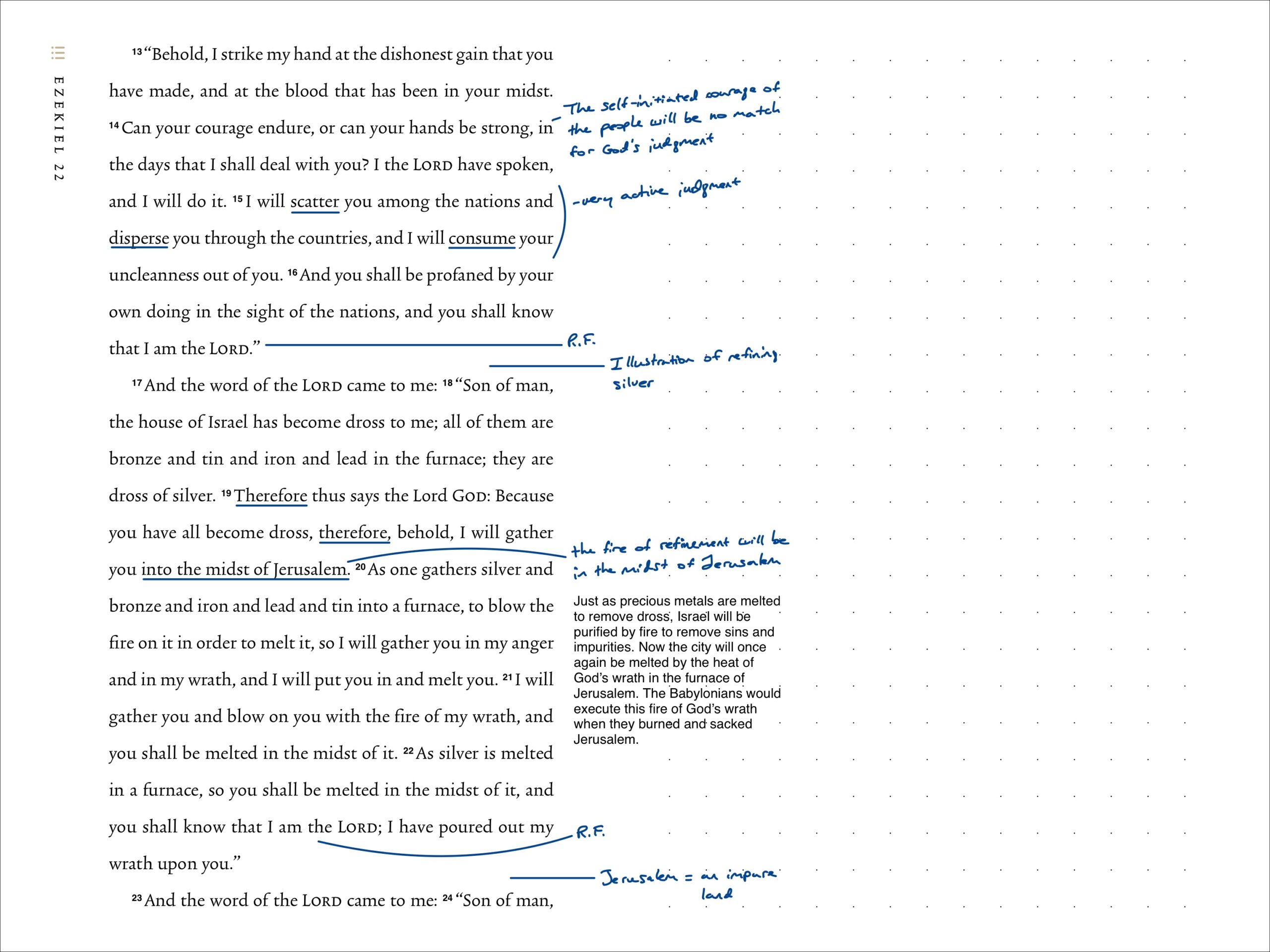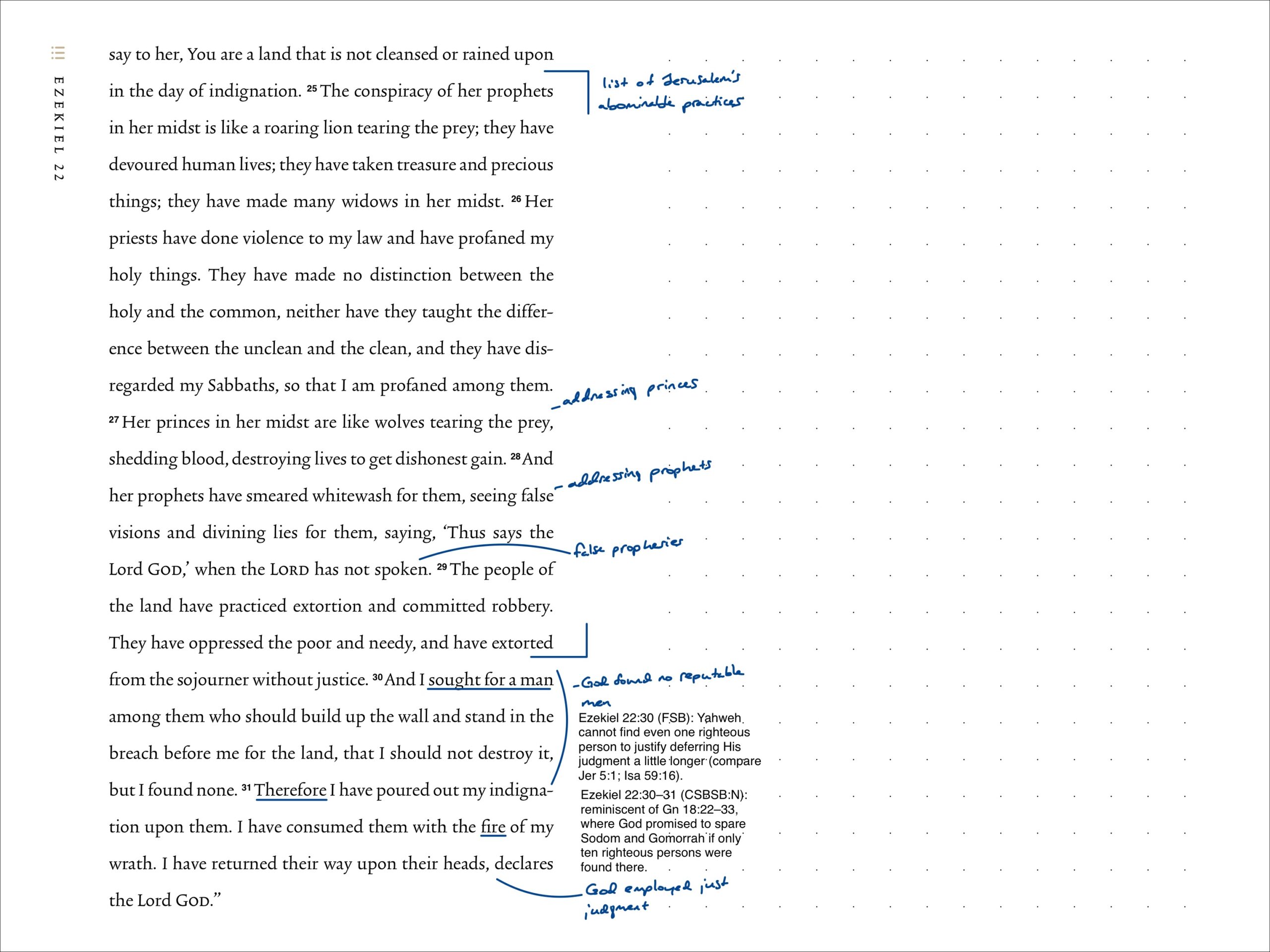| Date | Version | Reading Plan |
|---|---|---|
| @September 12, 2023 | ESV (2016) | ESV Prophets Plan 2023 |
Pericopes
- Israel’s Shedding of Blood
Notes
The chapter opens with God calling Ezekiel to judge Jerusalem, referred to as “the bloody city”. This is similar to Isaiah’s accusation of Israel that their hands were “full of blood” (Isaiah 1:15). In this context, the blood was perhaps a reference to human sacrifice. They had become defiled by their idols and love for fellow Israelites had been replaced by idolatry. Now, the city’s pouring out of blood would be countered by God’s pouring out of His wrath and other countries will mock them (Ezek. 22:5).
Ezek. 22:6-12 is a catalogue of sins based on the regulations in Lev. 18-20. The kings are specifically indicted because it was their responsibility to make sure justice was being administered in the community, especially in protecting the poor and weak (Ps. 72:1-4). God speaks directly to the Israelite wickedness as “in you” and contrasts that with the “but me” they had forgotten (Ezek. 22:12).
Ezek. 22:13-16 is the judgment God will now exact against the people for their actions. He will strike His hand at their dishonest gain, scatter them among the nations, disperse them through the countries and consume the uncleanness out of them (Ezek. 22:13-15). All that they should know that He is the LORD (recognition formula) (Ezek. 22:16).
Ezek. 22:17-22 is an illustration of Jerusalem as it she become dross to God. They are bronze, tin, iron and lead to be separated from the silver (Ezek. 22:18). God will therefore gather them “into the midst of Jerusalem where He will “blow the fire” on the silver to be refined. The city will be melted by the heat of God’s wrath in the furnace of Jerusalem which would be the Babylonian takeover (Ezek. 22:21). Again, all this was done in order that they would come to know that He is the LORD (Ezek. 22:22).
The remaining verses (Ezek. 22:23-31) continue in this narrative of Jerusalem as an impure land in need of purification. The conspiracy of her prophets are compared to lions devouring human lives (Ezek. 22:25). Her priests have done violence and profaned God’s holy things, making no distinction between holy and common (Ezek. 22:26). The prophets claimed to speak on God’s behalf even though He did not send them (Ezek. 22:28). In all, God found no reputable men among them, no one righteous to defer His judgment any longer (Ezek. 22:30, compare Jer. 5:1; Isaiah 59:16). This leads God with no choice but to pour out His indignation, consuming them with fire and returning “their way upon their heads” (Ezek. 22:31).
Application
Jerusalem’s idolatry and rebellion continue to be revealed in this chapter. They were a city bloody from their sin and iniquity, dross that needed to be refined by God’s fiery judgment. The leaders had failed to shepherd and care for the people and the prophets led them astray with false divination. There was no one to be found among them that would give reason for God to postpone His wrath.
The repetition of “in you” in Ezek. 22:6-12 caught my eye in particular today, referring to the wickedness that was “in” the Israelites. This highlights that sin is not just something we do but something inside of us. A helpful referent text for this is 1 John 1:8, 10 that says, “If we say we have no sin, we deceive ourselves, and the truth is not in us…If we say we have not sinned, we make him a liar, and his word is not in us.” In these passages, it says both “have no sin” (indwelt sin) and “have not sinned” (sin by action), pointing to both our sin nature and how our fallenness manifests in the world around us. This comprehensiveness of our sin is important to grasp as it illuminates our great need for a Savior.
Scripture Journal Notes
Commentaries & Resources Used
- ESV Study Bible. (Wheaton, IL: Crossway, 2008)
- Faithlife Study Bible (Lexham Press, 2016)
- Believer’s Bible Commentary (Thomas Nelson, 2016)
- CSB Study Bible Notes (Holman Bible Publishers, 2017)
- Matthew Henry’s Commentary on the Whole Bible (Guardian Press, 1976)
- The Bible: A Reader’s Guide (Sterling Publishing, 2011)
- The Infographic Bible (Zondervan, 2018)
- ESV Digital Scripture Journal (Crossway, 2019)



